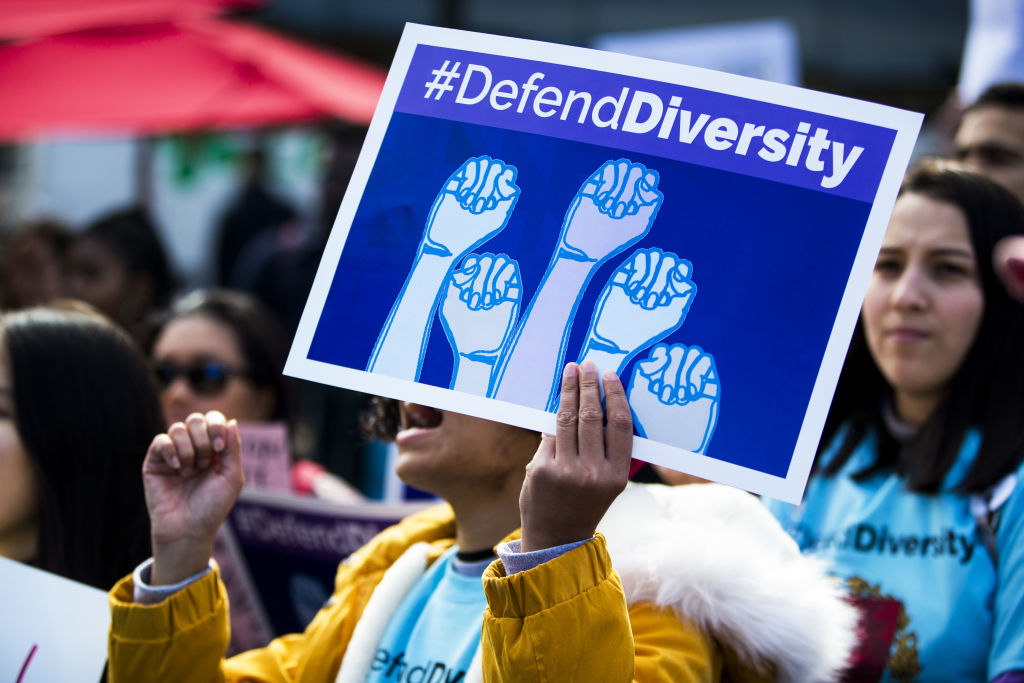Diversity, Equity and Inclusion (DEI) is on the ropes these days, and it’s a big problem for institutions that have invested deeply in this belief system. One way to rescue the enterprise is to tout new scientific results which buttress the claim that minorities and women are discriminated against in academia. Ergo the need for affirmative action.
Now the popular and increasingly woke magazine Science is trumpeting a new academic paper in the equally woke Nature Human Behaviour as a riposte to the naysayers. “Racial bias can taint the academic tenure process,” reads the headline.
The paper’s authors claim black and Hispanic academics with the same track record are discriminated against when they come up for tenure and promotion. But their data, if anything, points to anti-white and anti-Asian bias. Really, they foreground weak results while covering up inconvenient but powerful findings.
The authors briefly admit that disadvantaged minorities are advantaged over white and Asian academics when it comes to being promoted to full professor. But, at an earlier career stage, when moving from a relatively insecure non-tenured professorship to a secure tenured professorship, minorities are discriminated against. This helps explain their underrepresentation in academia.
Curious, I downloaded and crunched the data. Looking under the hood, the paper is in fact highly misleading. The term “p-hacking” is used to describe quantitative analysis which manipulates the data to find a significant finding that can be spun to support one’s priors. In this case, the authors did not pre-register the hypothesis they were going to test, allowing them to flex their hypothesis to match what they could mine from the data using a trial-and-error approach.
Second, they downplayed their strongest findings because these did not fit the narrative. Here is what they actually found: minority scholars are much less productive than white and Asian scholars, controlling for scholarly discipline and years as an academic. Academic output scores for the 8,157 white/Asian and 776 black/Hispanic case studies are significant at the powerful .1% level, but this goes unreported in the paper. The same pattern shows up in the sciences and social sciences/humanities. Women underperform men by an even larger amount.
In addition, white or Asian candidates for full professor are significantly less likely to be promoted than black and Hispanic candidates for a given level of publications. This reverse discrimination result is significant at the powerful .1 percent level. While this finding is briefly mentioned in the body of the paper, it is downplayed in the abstract, conclusion and marketing.
While the authors did find that minorities with weak publication records were disadvantaged compared to whites/Asians with weak records, this held true only for associate professors, not professors — where the reverse was true — and only on one measure and not the other. This is likely an artefact of the method and data collection, hardly the basis for a shouty headline about systemic discrimination.
Most academic proponents of DEI, or social justice, rely on pseudo-conspiratorial meta-theories such as critical race theory or flabby qualitative methods such as “auto-ethnography” (a.k.a. contemplating one’s navel) to buttress their knowledge claims. No wonder James Lindsay, Helen Pluckrose and Peter Boghossian were able to publish so many hoax papers in grievance studies journals merely by parroting feminist and critical race theory buzzwords.
However, laundering radical Left ideas enough to sell them to organisations requires at least some scientific patina. Even a thin quantitative foundation can be enough to backstop what Doug Stokes terms the grievance-industrial complex, with its well-remunerated institutional programme of radical indoctrination and race or sex discrimination. We’ve seen this with claims of sex discrimination in academia, which have failed to replicate, and with faulty arguments that diversity improves corporate performance. Rigorous studies which come to the wrong conclusions go uncited while weak papers like this one grab the limelight and make it into diversity training workshops. Don’t be fooled again.











Join the discussion
Join like minded readers that support our journalism by becoming a paid subscriber
To join the discussion in the comments, become a paid subscriber.
Join like minded readers that support our journalism, read unlimited articles and enjoy other subscriber-only benefits.
Subscribe